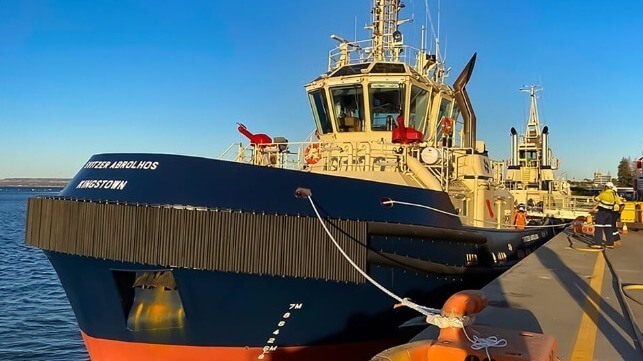Australia Scrambles to Prevent Port Chaos from Tug Crew Lockout

Multiple factions within the Australian government are scrambling looking to use the various tools within their power to prevent the planned lock out of tugboat crews by Svitzer Australia. The company, which services 17 ports around the country, threatened in a press statement issued yesterday to lockout the 500 crewmembers as of Friday in response to union actions in the three-year-long contract negotiations.
Late Tuesday, Australia’s Fair Work Commission took the unusual step of initiating a hearing scheduled for mid-day Wednesday to “consider making an order on its own initiative to suspend or terminate protected industrial action by Svitzer.” Vice president of the commission, Adam Hatcher, engaged rarely-used powers to start the process which is normally conducted at the request of either side in the dispute.
Hatcher said the commission had decided to act because of the likelihood that the strike would cause significant damage to the Australian economy. It has been highlighted that of the 17 ports, only Sydney and the small port of Eden in New South Wales have alternative tug operators. Many of the ports, including the major coaling port of Newcastle, said they would be effectively closed if the tugs stop operating.
The commission will consider either suspending or terminating the currently approved labor action. If the commission terminates the action, it would trigger an immediate arbitration to end the contract dispute. Previous efforts at arbitration had been unsuccessful both with the commission and an independent arbitrator. The stalemate is larger over work rule changes which Svitzer says are required to remain competitive while the union says would jeopardize the safety of the crews and tugboat operations.
The Fair Work Commission had previously suspended Svitzer’s protected industrial action also citing concerns for the economy during the pandemic and backlogs that developed especially at container ports. The action had resumed with the union staging temporary work stoppages as well as refusing overtime and other assignments. Svitzer said there had been over 250 actions since October 20 and that it was undermining its business. The union had increased its activity in advance of a ruling by the Fair Work Commission expected in December on a motion by Svitzer to terminate the 2016 labor contract and end collective bargaining for the union members. The union asserted that if permitted Svitzer would cut pay and impose work rules.
Svitzer responded to the Fair Work Commission announcement by saying that a settlement of the long-running dispute was in everyone’s best interest. The company said it would “respect and will engage with the FWC process,” will warning customers that “at this stage, it is difficult to predict the outcome.”
The Fair Work Commission’s announcement came after a day in which elected government representatives were also seeking to convince both sides to stand down in the dispute. New South Wales Transport Minister David Elliott reported that he was conducting crisis talks with representatives from both Svitzer and the Maritime Union.
At the same time, Federal Minister for Workplace Relations Tony Burke called for a delay in any action until after the Christmas holiday season. He also used the opportunity to again lobby for legislation that he has been pushing in parliament to reform the labor process and specifically the Fair Work Commission and its authorizing act. Among the reforms that he said are necessary are giving the commission greater authority to arbitrate in situations such as the current Svitzer dispute. He predicted that the legislation is only weeks away from passage with the current crisis highlighting the urgent need for the federal government's industrial relations reforms.
